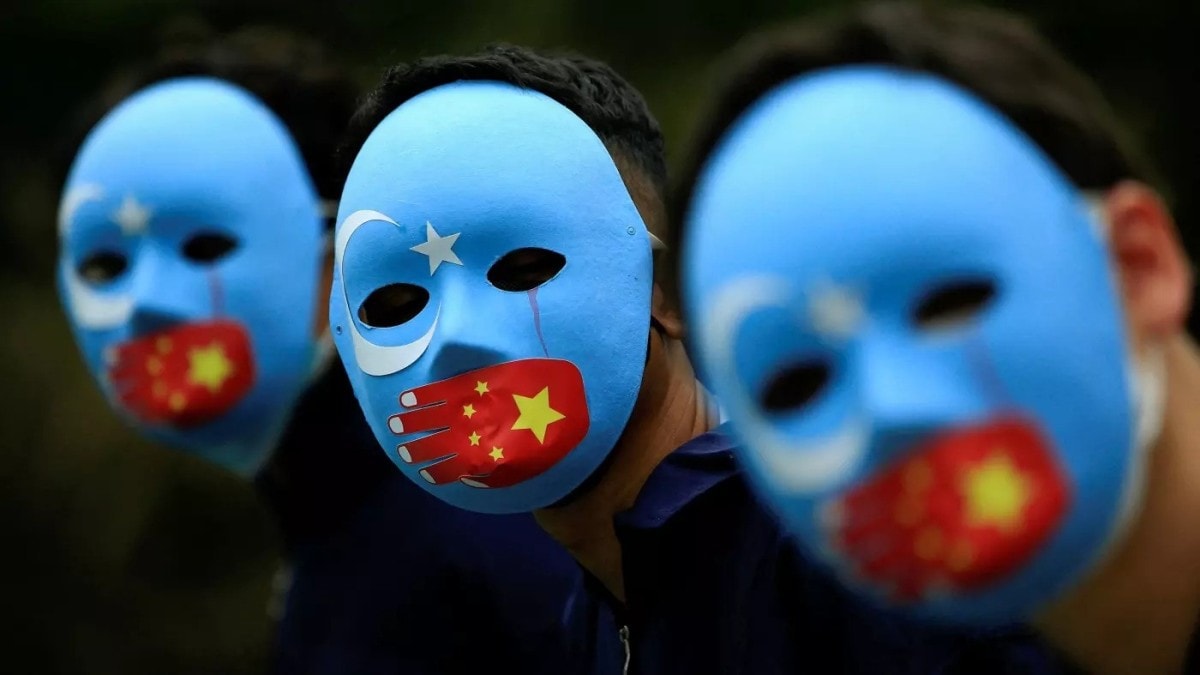
The Uyghurs—a name the world seems to have nearly forgotten. Why do their cries go unheard, even by those who rally loudly for other causes? Is this the outcome of an exclusive solidarity club that selectively decides who deserves sympathy? Why is there such stark indifference toward the Uyghurs, who, by all definitions, are their fellow Muslims? The Uyghur cause has become a focal point for Western criticism, particularly from the US and its allies. In defence of the Chinese state, some deny any atrocities or dismiss them as exaggerated claims of CIA-driven propaganda.
In 2023, Palestinian Authority President Mahmoud Abbas visited China and expressed support for Beijing’s treatment of the Uyghurs in Xinjiang—a stance echoed by the Organisation of Islamic Cooperation (OIC) in 2018. This indifference suggests that the issue is either dismissed outright or deemed less deserving of recognition. While many reasons explain why the Uyghur cause doesn’t generate the same level of outrage or mobilisation as Palestine, no single explanation fully captures this disparity.

Only by examining these reasons collectively can we understand this phenomenon. The Palestinian cause is often tied to a sense of humiliation, which is largely absent from the Uyghur issue. Arab Muslims, beyond their military defeats to Israel, carry a broader sense of historical humiliation.
While Uyghurs are also Muslims, their non-Arab identities and oppression by predominantly Han populations make their suffering feel less surprising or “humiliating”. In contrast, Israel’s ability to thrive despite being outnumbered heightens this humiliation, particularly due to its technological advancement, military strength, and support from Western powers, notably the United States. This pain is compounded by a nostalgic longing for the “golden age” of Islamic civilisation, once a global leader in innovation and influence.
For many, Palestine represents a collective wound inflicted by Western colonial powers—a sentiment not as strongly evoked by the plight of Uyghur Muslims in China. The Uyghur issue is perceived as an internal matter of Chinese governance rather than a colonial or imperial aggression. This distinction shifts the narrative from forced displacement to enforced assimilation, reducing the sense of humiliation.
Unlike Palestine, where the oppressor is seen as a Western ally, China is viewed as an authoritarian state imposing uniformity within its borders. This framing makes the Uyghur oppression feel less like a violation of global justice and more like an issue of domestic governance. The silence from Muslim-majority states is unsurprising given their own human rights track records.
Israel’s reliance on US military aid fosters deep resentment among many in the Islamic world, aligning with Ayatollah Khomeini’s infamous depiction of the US as the “Great Satan” and Israel as the “Little Satan”. This “enemy of my enemy is my friend” logic has grown stronger in recent years. Both the US and China hypocritically use causes like Palestine and the Uyghurs to deflect attention from their own human rights abuses.
With China positioning itself as a vital ally to Arab states, it’s clear why these nations avoid antagonising such a powerful partner. The religious significance of the Al-Aqsa Mosque also plays a key role. As Islam’s third-holiest site, its control by Israel is a deep wound for Muslims worldwide.
In contrast, Xinjiang—a remote region on China’s border—holds no comparable symbolic value. The disparity in media access exacerbates this issue; Gaza is extensively covered by international journalists, providing vivid accounts of its suffering. Xinjiang, however, operates under strict government control, with little information escaping its borders.
Ethnicity also influences indifference. Many Arabs feel no strong ethnic or cultural connection to the Uyghurs, who lie outside the traditional core of the Ummah. This may explain, at least partially, why civilian deaths in Syria, Yemen, and Sudan also fail to garner widespread outrage.
Sectarian bias further complicates the issue, creating a hierarchy within the Muslim community regarding whose suffering is deemed worthy of attention. The concept of “Arab supremacy” persists, where Arabic-speaking Muslims are seen as more central to the Islamic faith, while Muslims from East Asia or Africa are considered peripheral. This implicit bias limits the empathy directed toward struggles like those of the Uyghurs.
The Uyghur movement lacks a cohesive leadership or central organisation to advocate for their cause. The last major united effort occurred during the Second East Turkestan Republic, before the Chinese Communist Party’s complete takeover. Like China, many Middle Eastern nations exhibit zero tolerance for separatist movements.
Saudi Arabia and Bahrain contend with Shiite communities, and the Kurds across Syria, Iraq, Turkey, and Iran continue their fight for self-determination. These post-colonial states maintain cohesion more through coercion and surveillance than through unity. During the Cold War, the Uyghurs received some support from the USSR, but today they are largely isolated.
This lack of external support further diminishes the sense of urgency around their plight. Finally, economic considerations play a significant role. China’s growing influence as a vital trade and investment partner has silenced dissent.
Over the past two decades, China has strategically deepened its ties with the Middle East, leveraging its demand for oil and investments through the Belt and Road Initiative (BRI). This economic interdependence discourages Muslim-majority nations from criticising China’s actions. It would be simplistic to attribute this indifference to just one factor.
Both China and the US are less interested in protecting Muslim lives than in using the Uyghurs and Palestinians as pawns in their geopolitical games. For the Uyghurs, this means little hope for justice or global attention. In a world this callous, their struggle seems destined to remain on the margins.
You can reach out to Ananya on Twitter at @priyadarshi_12 or at her email address: [email protected] . Views expressed in the above piece are personal and solely those of the author.
They do not necessarily reflect Firstpost’s views..















